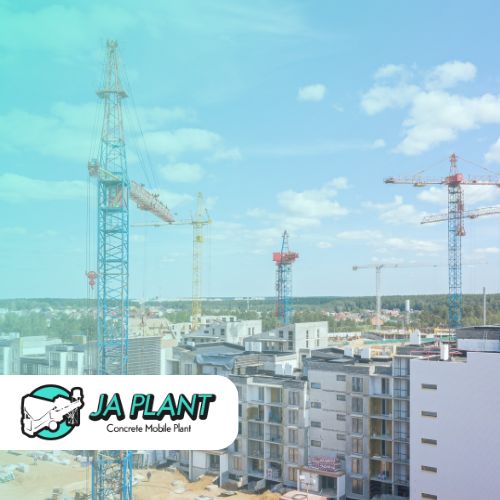Mobile Batching Plants Supporting Infrastructure Development
27th Mar, 2024

Revolutionising Construction in Africa: The Critical Role of Mobile Batching Plants in Supporting Infrastructure Development
Africa's construction market is undergoing a significant transformation, propelled by a surge in infrastructure development projects. As the continent strides towards modernisation and economic advancement, the demand for efficient, cost-effective, and quality construction practices is more pronounced than ever. Central to meeting these demands are mobile concrete batching plants, which have emerged as game-changers in the construction industry.
A Surge in Infrastructure Projects
The African continent is witnessing an unprecedented need for comprehensive infrastructure development. The scope of projects is vast and varied from roads and bridges to ports, airports, railways, and power plants. These initiatives are not just about enhancing connectivity and facilitating trade but also about laying the groundwork for sustainable economic growth and urbanisation. The role of the construction sector, supported by mobile batching plants, is crucial in this context.
Why Mobile Batching Plants?
Mobile batching plants offer a versatile and efficient solution for on-site concrete production, a critical requirement in many of Africa's infrastructure projects. These plants are designed to be easily transported and quickly assembled at various construction sites, providing flexibility that traditional concrete batching methods cannot match. This mobility ensures that high-quality concrete can be produced and used exactly where it's needed, reducing transportation costs and the environmental impact associated with long-distance concrete delivery.
Benefits Unleashed:
- Cost-Effectiveness: By producing concrete on-site, mobile batching plants significantly reduce transportation and material costs. This efficiency is invaluable in large-scale infrastructure projects where the budget and timelines are tight.
- Enhanced Efficiency: The ability to produce concrete on-demand and on-site means that construction projects can proceed without delays waiting for material delivery. This increases the overall efficiency of construction projects, ensuring timely completion.
- Quality Control: With mobile batching plants, contractors have direct control over the concrete mix, ensuring that it meets the specific requirements of each project. This on-site mixing capability allows for immediate adjustments if necessary, guaranteeing a higher quality of construction.
- Environmental Sustainability: Reduced transportation needs mean lower carbon emissions, aligning with global and continental goals for environmental sustainability. Additionally, these plants often use less water compared to traditional concrete batching methods.
Challenges and Solutions:
Despite their benefits, the deployment of mobile batching plants in Africa faces several challenges. These include logistical issues related to transportation to remote sites, the need for skilled operators, and the challenge of maintaining equipment in harsh environments. However, solutions such as operator training programs, investment in durable and adaptable plant designs, and the development of local support networks for maintenance and parts are addressing these challenges.
The Road Ahead on infrastructure and the role mobile batching plants play
As Africa continues to invest in its infrastructure, the role of mobile batching plants in the construction industry is set to grow even more prominent. By enhancing efficiency, reducing costs, and improving quality, these plants are not just supporting the continent's development projects. Still, they are also contributing to the broader goals of economic growth and sustainability.
The adoption of mobile batching plants is a testament to the construction industry's adaptability and commitment to innovation. As we look to the future, these mobile units stand as pillars of the infrastructure development that will shape Africa's landscape, fostering a more connected, sustainable, and prosperous continent.